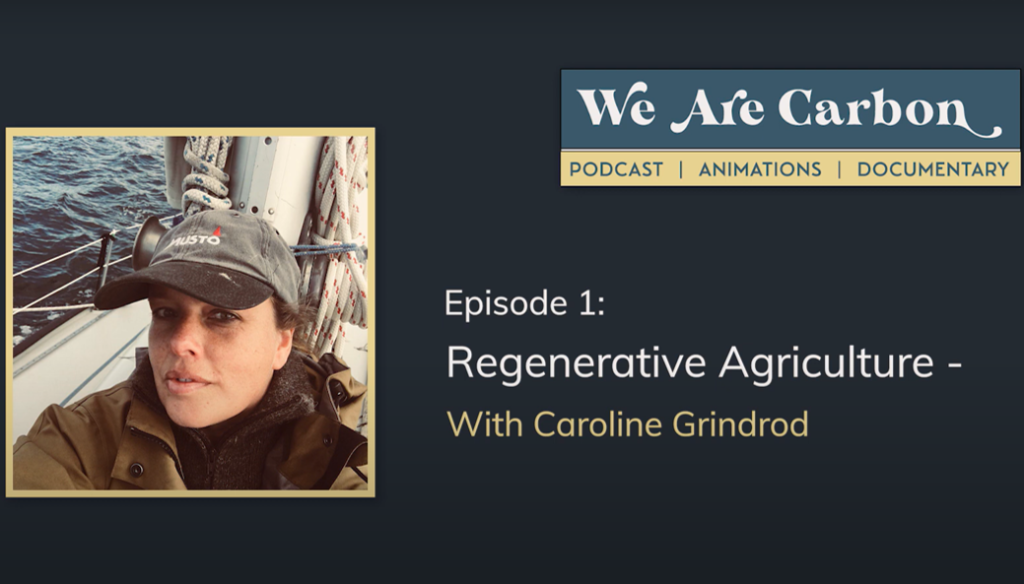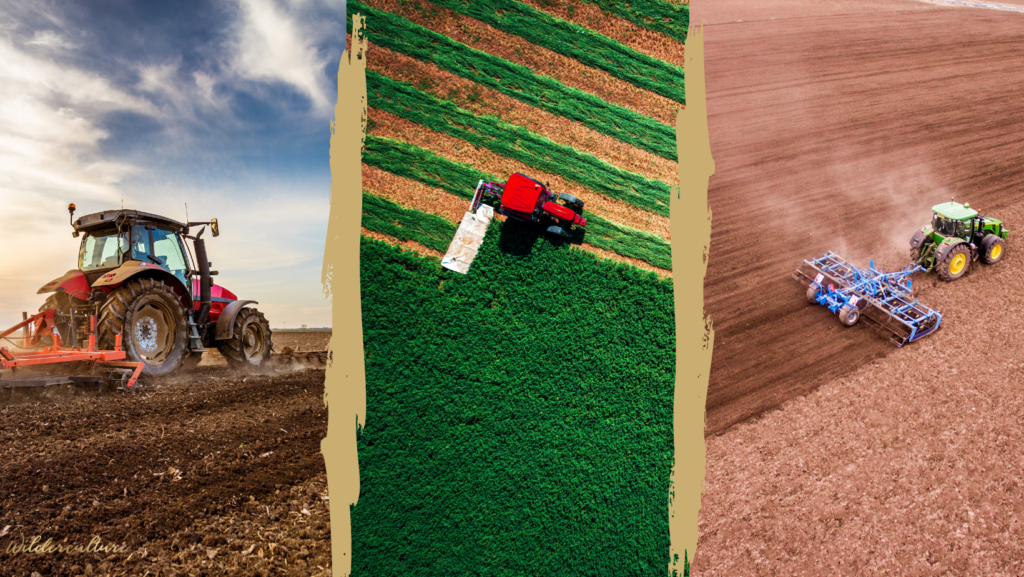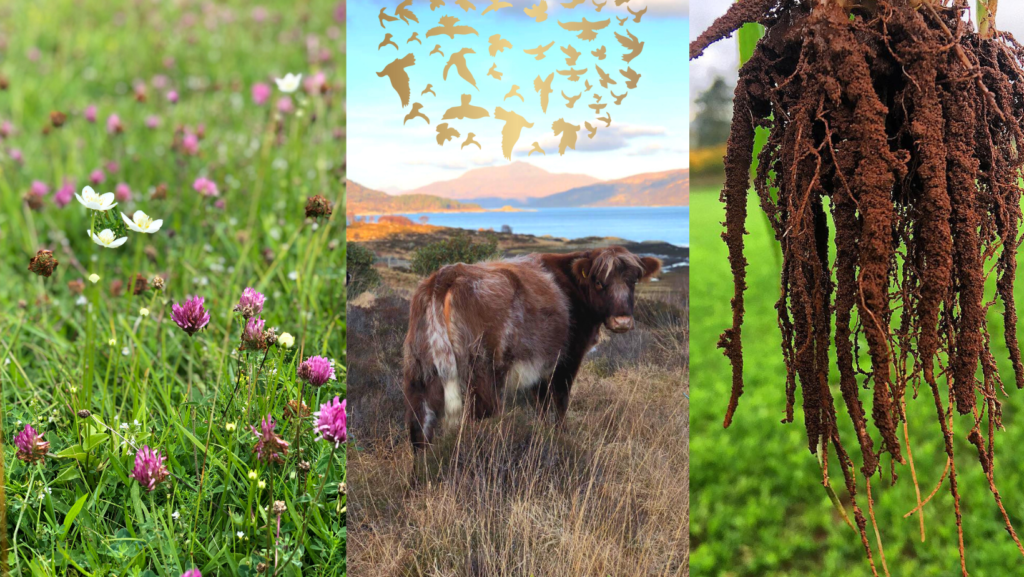
Managing Complexity, it’s a mindset thing.
By Georgia Wingfield-Hayes
In a recent interview for the brand new Winglewood podcast ‘We Are Carbon’, Caroline Grindrod, founder of Wilderculture talks about the mind-shift required to enable us to work with the complexity of the natural world.

“A lot of society is still dominated by a rational, reductive mindset, but when it comes to living systems this can be very detrimental because these systems are not machines – they are adaptive, emergent and self organising.”
Caroline started out her life with a great passion for the environment and animal welfare. Following her early career in nature conservation, she then married into farming. This gave her the opportunity to explore nature-friendly farming and conservation grazing. It was from here that her ideas started to develop. A key insight within her work is the recognition that separating food production and land managed for wildlife, has an inherent flaw because we share one climate, one hydrological system and what you do in one area can’t but affect another. It is Caroline’s belief that we can do both better, together.
Then she discovered the work of Allan Savory and Holistic Management and decided she wanted to explore what that would look like in the British uplands, which is when she set up Wilderculture, an organisation that works with landowners with a hybrid of rewilding and regenerative grazing.
Savory’s work was developed in the semi-arid climate of Southern Africa and the USA, but Caroline had a hunch, that although Britain’s climate is very different, that these ideas were vital to address the problems she was seeing in our upland environments.
Britain, unlike Southern Africa, has a very forgiving climate. Historically at least, we get rainfall all year round and this has for a long time masked the underlying environmental problems. However, with an increase in adverse weather events, these problems have become much more apparent.
Droughts and floods events are increasing, as are problem farmland species such as ticks, rush and blowfly. In the Wilderculture Approach, we call Red-Flag species Species, something that indicates an imbalance in the environment. Rather than tackling that species directly, we look to address the underlying causes in the system.
“If we try and use prescriptions, rules and templates for living systems, that’s when we get it badly wrong, and I believe that is the root cause of the problems in modern agriculture,” says Caroline when asked to explain further her ideas on this holistic approach. She goes on to explain that modern farming still works largely from a rational, reductive science perspective. We think if we apply ever more complex technologies, micro-managing systems that we will get repeatable results, but this is not possible when working with living systems.
Managing life’s complexity requires a different mindset. Rather than working with fixed rules and prescriptions, we work with overarching principles. We work with farmers through training and support so they can apply these principles in their unique context.
The regenerative agriculture movement is increasingly gaining traction, but one of the major problems with the large-scale adoption of these methods is if those adopting them don’t make the required mindset shift. This means they will then be forced into the old rational, reductive methods of working.
We are seeing this already. Many people think that regenerative agriculture is just about fixing the soil, but we have to consider the whole system and how all the parts are related.
If we don’t foster a paradigm shift in thinking then the golden opportunity offered to us by regenerative agriculture and holistic management risk getting reduced into a self-limited approach. One of the keys to making this shift is assuming that you never have all the answers and therefore are always allowing yourself to learn from nature.
“Thankfully,” says Caroline, “more and more people are waking up to working with complexity.” This is where the question about the sustainable nature of meat production comes in. With a rational mindset, we have ended up believing that efficiency comes in the form of intensifying systems.

Before the industrial revolution, we didn’t have problems with the emission of carbon. This isn’t just because we weren’t burning fossil fuels. Carbon has come to have a bad reputation as the cause of climate change, so all sources of carbon, including methane from cows has come to be examined. And while intensive meat production is deeply problematic, and not just in terms of emissions, to make the animals rather than the systems the problem, is a grave mistake.
If we look back in history we find that the great plains of America were home to millions of buffalo, indeed the number of cows now in America is not that different from the number of buffalo that once were. These buffalo didn’t create climate change because they were simply part of the carbon, cycling in balance on our earth.
Managing life’s complexity requires a different mindset.
Animals breathe out CO2, plants breathe it in. Animals emit methane and, in a healthy soil, methanotrophs break it down. In a healthy atmosphere, the hydroxyl pathway also breaks down methane. A healthy soil, teaming with life and covered with plants, keeps the soil cool and retains water. This creates a healthy hydrological cycle that keeps the whole planet cool. Whereas bare soil does none of that, plus it re-radiates immense levels of heat back into the atmosphere. These are just a few examples of how, with modern agriculture, we are crippling earth life support systems and contributing to an unstable climate.
“We’ve decoupled the system,” continues Caroline, “We’ve shot wild herbivores, and housed domestic ones, we’ve ploughed soil, exposing the microbes, releasing the carbon. There is less transpiration from plants and trees. CO2 is not being cycled into the soil. Manure gets stored in huge piles releasing methane. Ultimately you’ve got a system that is no longer able to regulate itself.”
So we have to think of this bigger picture when managing our land, even though it might not seem relevant to us. Through this approach, we can create a more resilient farming system, one that is less reliant on subsidies. Farming has for too long been degrading the very resources upon which it depends, but we can turn that around by understanding the role of grazing animals in the regeneration of soils and ecosystems.
Caroline is less of a consultant and more of a coach to the land owners she works with, helping them figure out what they really want from their farms. From looking at if they want to be working with livestock, game, shooting, to what breeds work best, and how to manage the complexity of commons grazing.

“So we create the context with the landowners,” says Caroline. ”What people want, what the community wants (to a certain extent), how do we make it pay and how do we get regenerative outcomes? How do we increase biodiversity, how do we improve the watershed? How do we build soils so we can make money from sunshine and water into the future forever, so we can pass it on to future generations? That’s what we try and do.”
Finally, Helen asks Caroline what she sees as the biggest challenges going forward.
“The mindset shift,” says Caroline simply, “How do we best advance people’s thinking, to shift to understand how whole-system-function, just works better. Farmers could be the best holistic thinkers ever, but if consumers and companies don’t understand this then… There is a lot of work to be done here, to think differently and teach others to think differently.”
Listen to the entire interview on ‘Understanding Regenerative Agriculture’ with Caroline on the website We Are Carbon.


No Comments